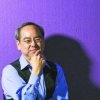“Are there any continuities,” wonders scholar Min Hyoung Song, “between the earlier generation of writers which first raised the banner of an Asian American literature and a later generation of writers which inherited it?” The Asian American Literary Review asked writers to respond to this question for their Spring 2012 issue on “Generations.”
Forum Response by Richard Oyama
In 1974 I first went to Basement Workshop (BW), an Asian American arts organization in New York’s Chinatown. Though I’d taken creative writing classes at The City College of New York, I longed to share my work with kindred spirits. That year brought a sort of national exhaustion: Nixon’s resignation, the drawn-out Vietnam War, violent factionalism on the left.
The experience at Basement was formative; it’s where I formed lifelong friendships with poet Fay Chiang, BW’s former executive director, avant-garde violinist Jason Hwang, and poet Teru Kanazawa. Frances Chung and Henry Chang were also notable BW alums. Crazy Melon and Chinese Apple (Wesleyan University Press, 2000), Chung’s posthumous poetry collection, was edited by Walter Lew. Soho Press has published Chang’s three knowing novels of Chinatown noir. 7 Continents 9 Lives (Bowery Books, 2010) assembled Chiang’s selected and new poems. The Country They Know (Neuma Books, 2005) was my first collection of poems.
While the punk/no-wave scene has been much documented, one of the overlooked aspects of New York cultural history in the 70s was the flowering of a multiethnic literary scene with BW, Nuyorican Café, and Studio Museum of Harlem among its hot foci. Bob Holman and Sarah Miles’ Poetry Calendar hosted carnivalesque sideshows, a noisy prologue to the spoken word movement as Southern midnight rambles were the ancestors of rock ‘n’ roll. Established poets like June Jordan, Adrienne Rich, and David Ignatow were nurturing of younger writers such as Patricia Spears Jones, Sandra Maria Esteves, Chiang, myself, and others.
For us, John Okada, Louis Chu, Carlos Bulosan, Hisaye Yamamoto, Bienvenido Santos, and Toshio Mori were pioneers. Poets Lawson Inada and Mei Mei Berssenbrugge and playwright Frank Chin were our youthful mentors. I prefer to think our example—whether acknowledged or not—paved the way for contemporary writers of Asian heritage such as Susan Choi, Li-Young Lee, Maxine Hong Kingston, Chang-rae Lee, Marilyn Chin, Jhumpa Lahiri, David Wong Louie, and Ken Chen, among others, to produce an enduring body of work that will take its place in American literature without need of hyphenation or modifier.
In 1979 my involvement with BW ended when I was accepted into San Francisco State University’s Master’s program in Creative Writing to focus more intently on my craft.
To some degree, I resist the terms of the prompt. Susan Sontag said our inclination to see history in generational terms is ideological. I don’t accept the designation “boomer” because it’s too limiting of my plural selves and the historical imagination. Nor do I accept the equation of writing and “left politics.” Carolyn Forche said this:
I have felt that [activism] is one particular work and my poetry is another work, so rather than referring to myself as an activist poet, I might perhaps accept the idea of being an activist and a poet. The point at which they intersect is something artistically circumstantial…Poetry can’t be placed in the service of anything other than itself.
My essay in this issue has less to do with race, ethnicity, and identity than with depression and anxiety. In the end, our desire to create an “Asian American” literature granted us the amplitude to become ourselves.
Next Forum response will be by Velina Hasu Houston…
*This article was first published in The Asian American Literary Review Spring 2012: Generations. The AALR has generously shared several of the forum responses, poetry, and prose with Discover Nikkei from this issue by David Mura, Richard Oyama, Velina Hasu Houston, Anna Kazumi Stahl, Amy Uyematsu, and Hiromi Itō (translated by Jeffrey Angles).
AALR is a not-for-profit literary arts organization. To learn more about it or purchase a subscription to the journal, visit online at www.asianamericanliteraryreview.org, or find them on Facebook.
© 2012 Richard Oyama




